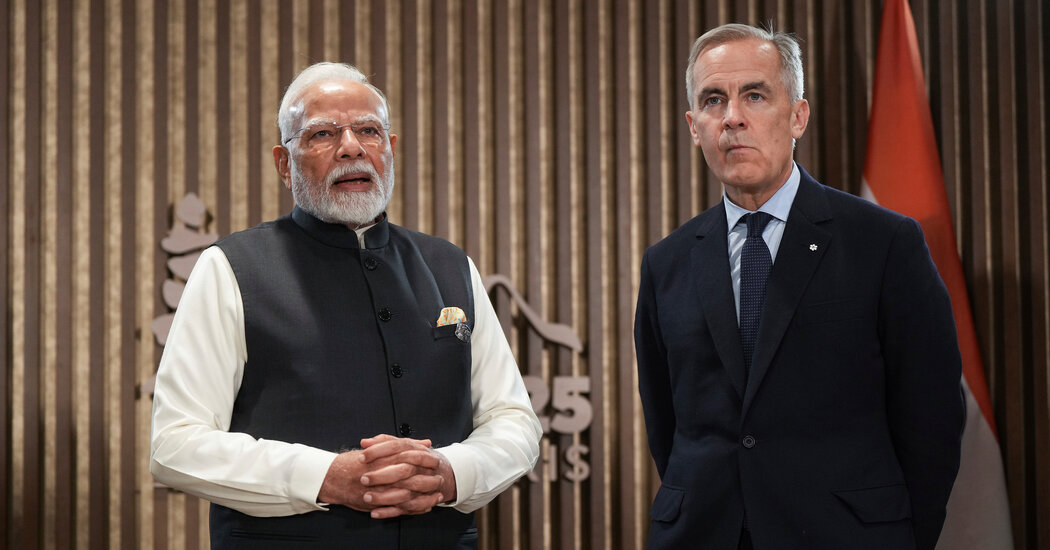
India and Canada signaled a significant diplomatic thaw nearly two years after the killing of a prominent Canadian Sikh cleric set off a deep rift between the two countries that culminated in each expelling the other’s senior diplomats.
The two countries said in separate statements on Tuesday that they would appoint new high commissioners, or ambassadors, restart trade talks and restore visa processing and other services to citizens. The announcements came after Prime Minister Narendra Modi of India and the Canadian leader, Mark Carney, met during the Group of 7 nations summit in Kananaskis, Alberta, on Tuesday. India is not a member of the bloc but Mr. Modi was invited to attend by Mr. Carney.
“The leaders agreed to designate new high commissioners, with a view to returning to regular services to citizens and businesses in both countries,” according to a statement from Mr. Carney’s office.
Indian officials said in a statement that the two countries are likely to restart “senior ministerial as well as working-level engagements across various domains to rebuild trust and bring momentum to the relationship.”
However, neither side referred to the reason their relations had deteriorated in the past two years.
In September 2023, the Canadian government, led then by Justin Trudeau, accused India of orchestrating the fatal shooting of Hardeep Singh Nijjar, an activist who supported carving out a Sikh homeland, Khalistan, from India. Mr. Nijjar, a Canadian citizen, was fatally shot in British Columbia that June.
The Indian government, which had branded Mr. Nijjar a terrorist, rejected the allegations and accused Canada of harboring extremists who were plotting violence on Indian soil in the name of Khalistan. It also alleged that Mr. Trudeau’s accusations were politically motivated and he was sympathetic to Sikh separatists for political gain. Canada is home to the largest number of Sikhs outside India and many support his Liberal Party.
Trade talks and business ties between the two countries deteriorated, as did services such as issuing travel visas. By last October, the rift had deepened. Canada kicked out India’s high commissioner and five other diplomats, calling them “persons of interest” in the killing of Mr. Nijjar. India retaliated by expelling six Canadian diplomats.
But in recent months, Mr. Trudeau’s resignation and the election of Mr. Carney — a prominent economist and former governor of the Bank of England — presented an opportunity for the two countries to reset their relationship.
Matina Stevis-Gridneff contributed reporting.
